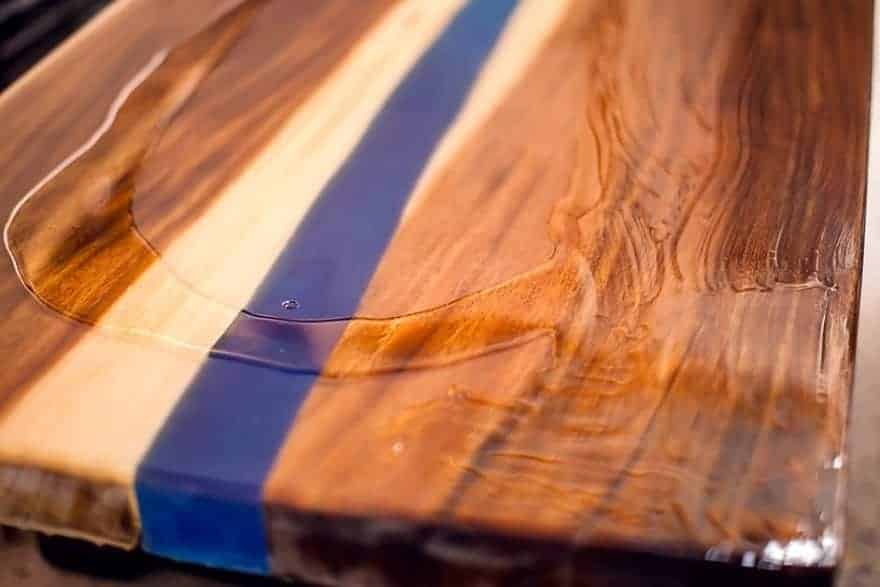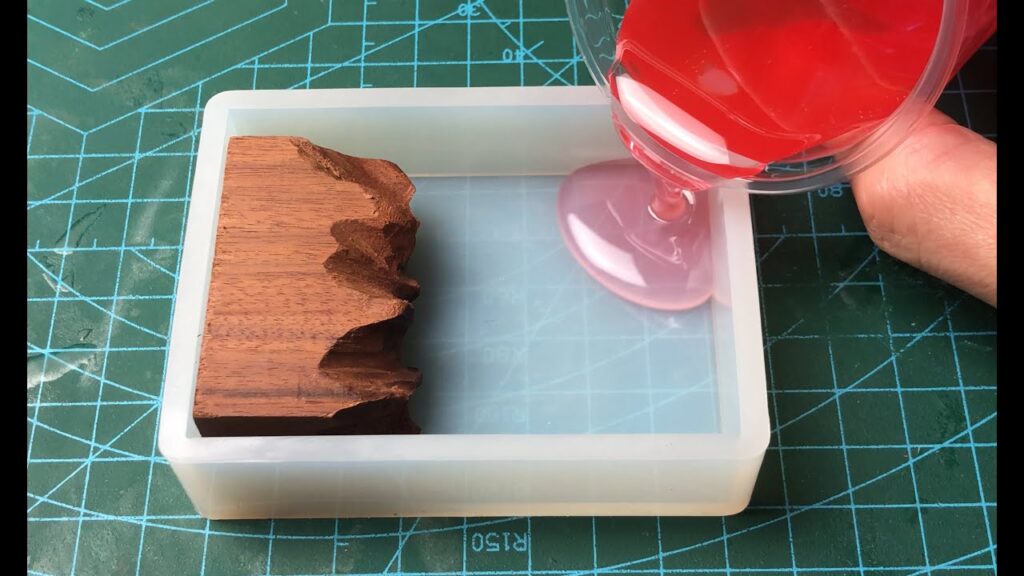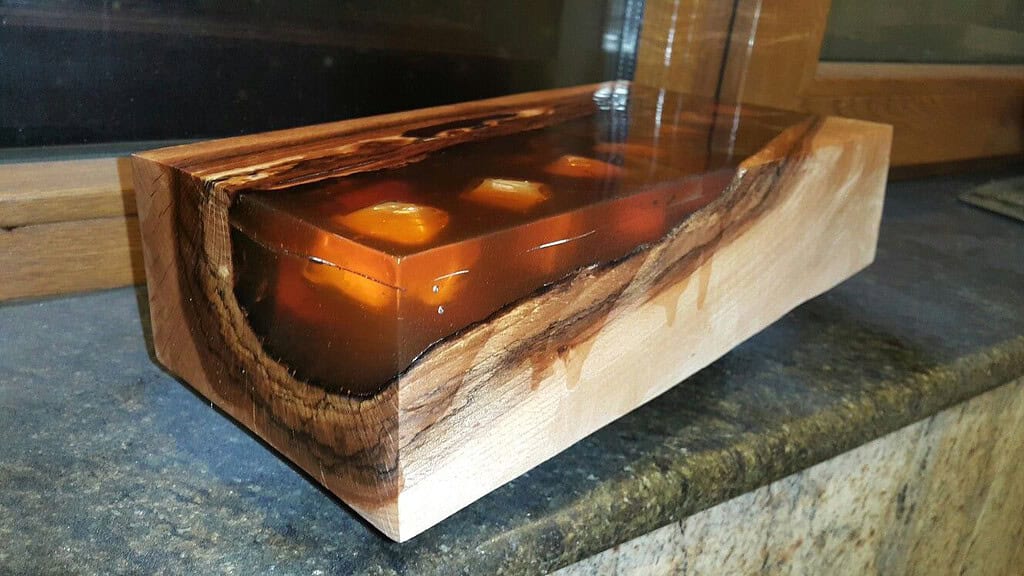Epoxy Resin: Different types of resins
There are so many uses for synthetic resin; it can be shaped and molded into any structure or shape, it can be used as an epoxy, and it can be camouflaged and mixed as the substance it adheres to works with. In this post, we give you an overview of the different types of epoxy resin.
What is Epoxy Resin?
To begin with, several types of synthetic resin are available on the market, each with its own properties and composition. Here you will find out the following types of resins: Epoxy Resin, Polyurethane, and Polyester. Also, most resins are made up of two components: the base resin and the hardener (catalyst).
Importantly, when you start mixing these components, you start a chemical reaction that allows the resin to dry. This is a versatile form of resin with many uses, making it the go-to resin for many projects.
Epoxy Resin Pros
Firm and durable
Extremely easy to customize and design
Long-lasting materials, when applied properly
Quite inexpensive, types vary and availability.
Epoxy resin can be utilized for the largest number of installations.
Epoxy Resin Cons
Yellowing when exposed to direct sunlight
Requires a dry atmosphere to set up sufficiently
Not recommended for use in high humidity environments
Application
Firstly, applies the resin layer by layer, allowing each layer to dry before laying down the next layer.
Secondly, you can sand down the resin once you have applied the prime coat.
Lastly, further sanding is necessary only in case of outgassing.

Polyurethane Resin
As a matter of fact, you can use polyurethane resin for casting molds, and it is a strong product that can be installed to make a variety of items. Moreover, polyurethane resin is very durable and, when set through applying heat, becomes very hard. Various polyurethane resins are used in several different industries, such as many appliances with polyurethane products. Polyurethane is also often found used in the automotive industry.
Polyurethane Resin Pros
Highly resistant to UV light
Resistant to the high-temperature environment after installation
Dries very quickly
It has amazing flow properties and easy to mix
It makes it easy to cover a mold
No shrinkage during the setting process.
Polyurethane Resin Cons
It has worse adhesion than epoxy resin.
Highly sensitive to moisture, this can cause foaming
Unpleasant odor while curing process
No odor, once the resin has cured
Additional additive required for low-temperature applications
Polyurethane Application
Firstly, if you are doing a mold casting with PU resin you will need to mix the two components before you pour the resin into the mold.
Secondly, polyurethane topcoat application will guaranty high strength and make the surface slip-resistant.

Polyester Resin vs Epoxy resin
Lastly, similar to epoxy resin, polyester resin can be used to make models. It is most often used in swimming pools, make ponds, and in the manufacturing of boats. Furthermore, the resin produces a strong composite material with a fiber structure that is water-resistant.
Polyester Resin Pros
Firstly, the percentage of hardeners is variable and determines the curing time based on temperature.
Also, it’s highly durable and resistant to UV light and water
Very affordable pricing
Lastly, flexible drying time is required, as the setting time is connected to the amount of catalyst.
Polyester Resin Cons
In fact, the mixing process is more challenging and actually quite technical.
You have to calculate the required amounts when mixing the two components.
Furthermore, it has a high odor and produces a strong unpleasant smell.
Polyester Application
Firstly, mixing is the same as with other resins – mix A and B.
Secondly, you have to calculate the amount of hardener that is added depending on the temperature of the application.
Finally, make sure you apply the coats in different directions. Also, this will help to avoid roller marks.

Conclusion
Finally, a different type of resin you can use is completely tied to the project you have chosen to tackle. As we described in this article, each resin has its own pros and cons. One of the biggest positive details of synthetic resins is that they can be mixed and installed as the substance they adhered to.
We hope you will find this info useful for your exciting projects. If you require a professional installer, DUOMIT is here to help. Please request a Free Estimate from your Concrete Contractors Near Me. Read also about Quartz Flooring Installations and Epoxy Basement Floor.
